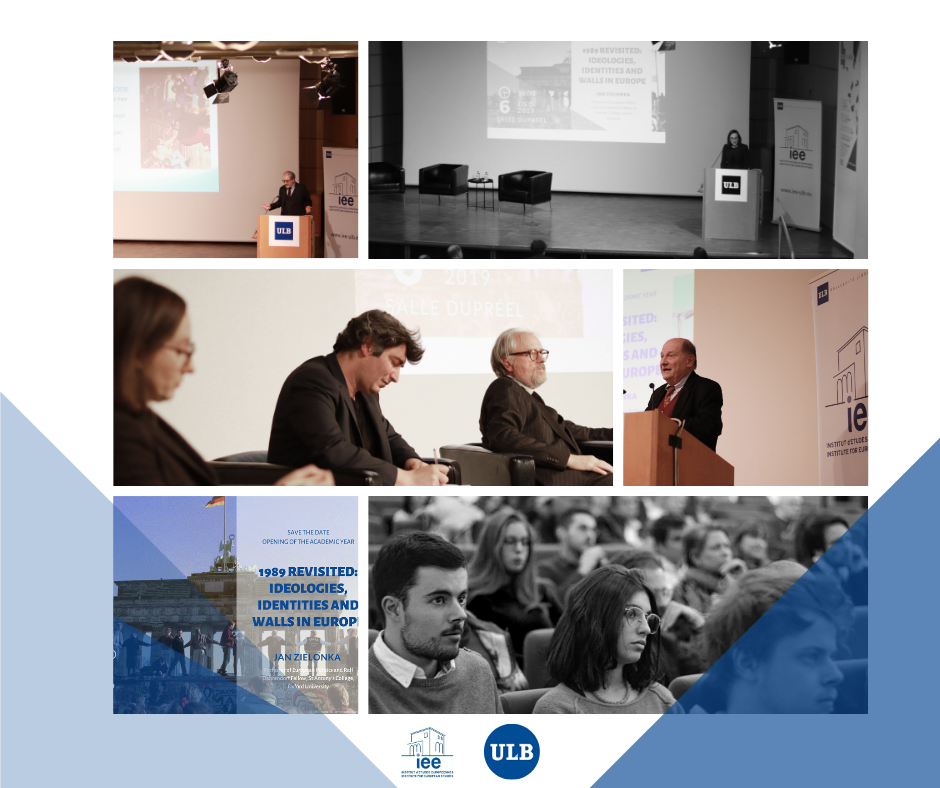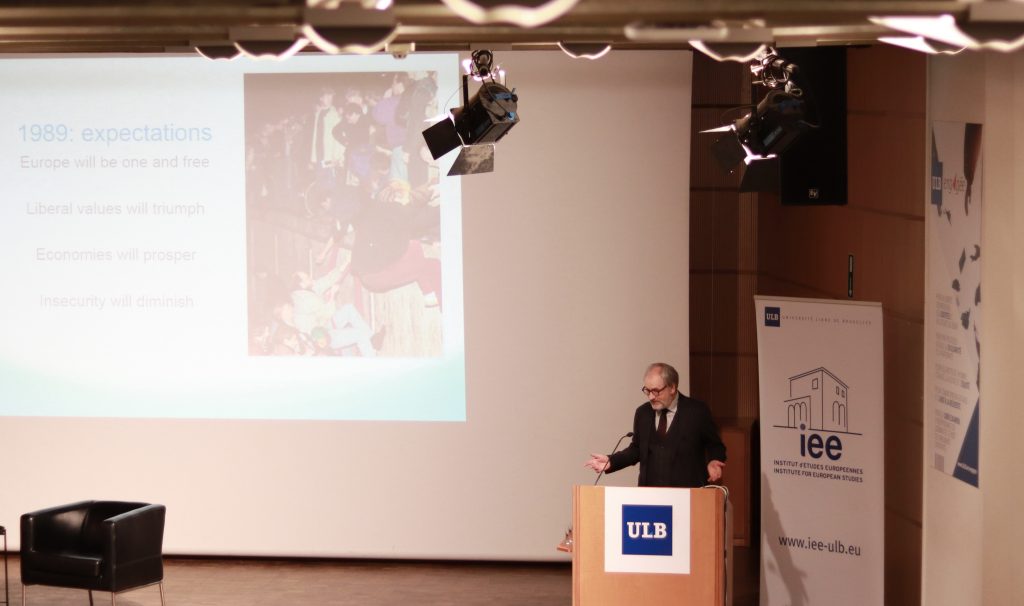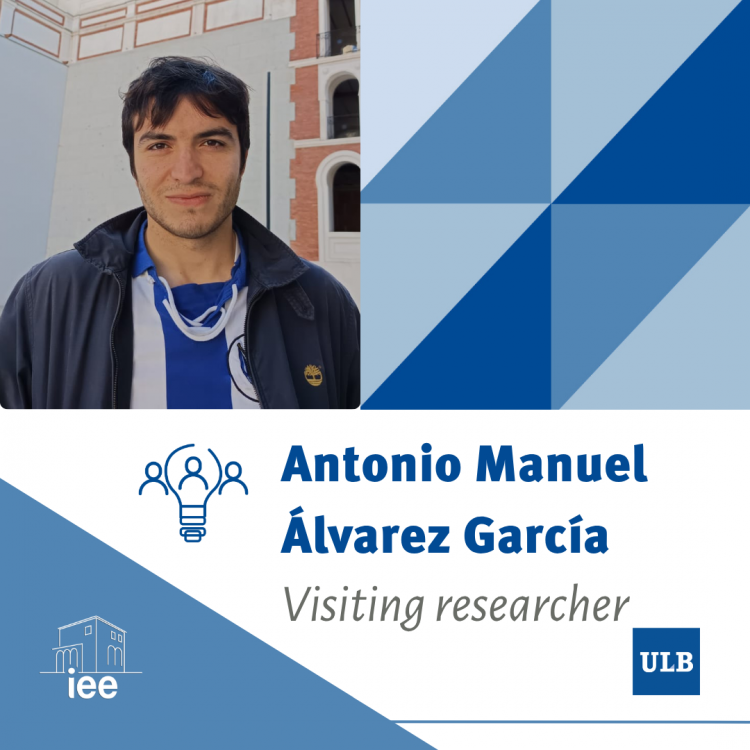Kristin HEIDEBROEK, member of the IEE’s Student Association, SAIES, wrote this report of professor Zielonka’s conference
On the 6th of December, the IEE-ULB invited scholars and students to celebrate the opening of the academic year. The institute invited Oxford University’s professor Jan Zielonka, to discuss the state of Europe 30 years after the fall of the Berlin Wall in his conference “1989 Revisited: ideologies, identities and walls in Europe”.
First, the IEE’s President, Ramona Coman, introduced the conference by explaining how, 30 years ago, “no one was able to explain why the events took virtually everyone, including most of the supposed experts, by surprise.” As ‘sovietology’ disappeared, explained Professor Coman, “the study of post-communism became one of the biggest research questions for political scientists, sociologists, lawyer and historians.”
Read Professor Ramona Coman’s introductory speech
Coman also spoke about her personal experience growing up under the rule of Ceaușescu, the Romanian communist ruler. Following the events of 1989, the future looked brighter as former soviet countries quickly started the democratisation process. The period brought new materials for scholars studying post-communist development. It was an exciting time for both former citizens of the Soviet Union and academia. However, thirty years forward, the new democracies are “skating on fin ice”. What did we miss? Professor Coman.
From dream to dismay
Professor Jan Zielonka then took the audience back to 1989, which he remembers as a big party. Never in their wildest dream would Eastern Europeans think they would live without a wall. The collapse of the Berlin wall created new dreams, of a united and free Europe. Thirty years later, Europe is heavily divided, crippled by fear and anger. This left people wondering: who destroyed the dream?
Eastern European populists are often described as “trojan horses” destroying the European Union from the inside. However, Professor Jan Zielonka contends as unfair the blaming of the sovereigntist movement for the problems facing Europe. On the contrary, claimed Prof. Zielonka, Hungarian Prime Minister, Viktor Orban, and his peers saw an opportunity in the demand of the electoral market. A demand which was created with the liberalisation of Europe.
How to govern unbounded Europe?
Unbounding Europe has created many winners, although many more losers, said Professor Zielonka. Globalisation has widened the gap between losers and winners, but Europeans accelerated the process with the creation of the single market. The Europeanisation has undermined the ability of state actors to react on the negative effects of globalisation. Yet, the restoring borders is not the solution. For Professor Zielonka, immigration in Europe is not the issue, because immigrants still face harsh restrictions on arrival and are the victims of shameful European external policies.
“The solution should not come from politicians and leaders; it should come from academics and researchers.”
The problem is that we do not know “how to govern unbound Europe fairly and effectively”. Prof. Zielonka, thus, urges the academics in the room to start that discussion and help European states save themselves. The solution should not come from politicians and leaders; it should come from academics and researchers. Solutions should come from them, to be translated by politicians, not the other way round.

Following Jan Zielonka’s speech, Professor Mario Telò discussed the promising prospect of the Union, with the “Green New Deal” and the creation of a green identity, followed by an interesting discussion with the public.




